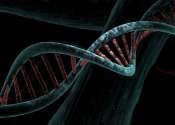New study identifies common physical features in babies born to mothers who used fentanyl
Babies born to mothers who used fentanyl during pregnancy displayed similar facial and musculoskeletal abnormalities that suggest the emergence of a novel syndrome, according to research published in the journal Genetics ...
Oct 27, 2023
7
1681








